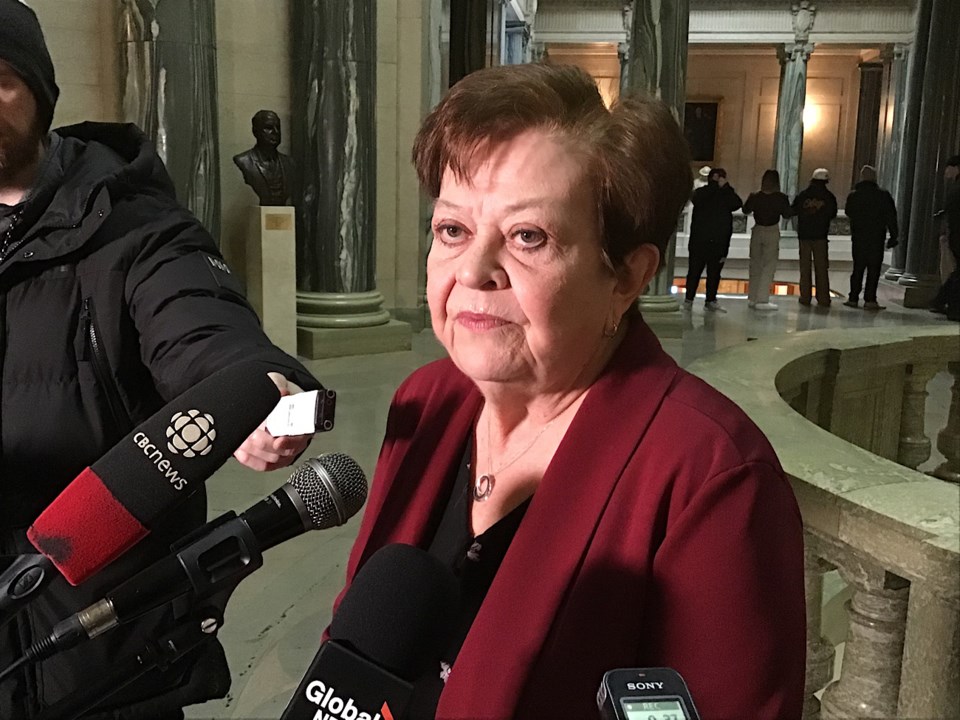REGINA - Finance Minister Donna Harpauer welcomed the news of a labour deal for SaskEnergy while at the same time calling for the teachers union to get back to the bargaining table.
Harpauer confirmed at the legislature Thursday the earlier reports that SaskEnergy had reached an agreement with members of UNIFOR, Local 649 on a new three-year Collective Bargaining Agreement, which runs from Feb. 1, 2023 to Jan. 31, 2026. She also pointed to many other public sector negotiations under way or concluded.
“We also have 21 tables that are actively negotiating at this point," said Harpauer. "We have two additional tables, the Saskatchewan doctors, and SaskPower that have tentative agreements at their table for ratification. I wish the teachers will come back to the table so they could be one of those tables that are actively negotiating.”
Harpauer was then asked a host of questions by reporters about the current labour dispute with the Saskatchewan Teachers’ Federation, which had gone out on a one day strike Tuesday and planned more job action Monday. Harpauer was asked in particular about the union’s ongoing demand that classroom size and complexity be an issue included at the bargaining table -- something the province has refused to this point.
It was her hope, she said, that the union is recognizing the government is making efforts and putting dollars towards addressing the issue.
“We recognize this is an issue. We’re not disregarding this isn’t a serious issue,” said Harpauer, pointing to the $53.1 million being allocated by the province to address it.
“You know, I would validate the teachers have a concern. I question whether or not that can be addressed at the bargaining table. But ultimately nothing will happen if they’re not at the table.”
As for how to get them back to the table, “we thought that by putting additional money into their concern, $53.1 million now over and above what’s in the budget, would help move them back to the table. It seems like that is not, or may not. We hope to, but to have further discussion, they ultimately have to be there.”
Harpauer was also asked about the government citing the number of 23.5 per cent as the salary ask from teachers. Harpauer noted the challenge was that the teachers were demanding a salary increase plus CPI, “which is not in any other bargaining agreement that we have.” That is where that 23 per cent number comes from, she confirmed.
As for the union's contention that there is language on classroom complexity in collective agreements outside the province Harpauer noted that was "somewhat limited...it's not the demand we are being asked for from the teachers' union."






